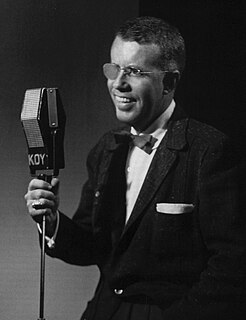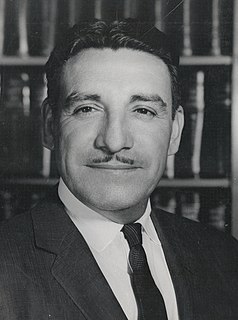
The United States Senate elections, 1978 in the middle of Democratic President Jimmy Carter's term. Thirteen seats changed hands between parties. The Democrats at first lost a net of two seats to the Republicans, and then one more in a special election. Democrats nevertheless retained a 58-41 majority.

The 1970 New York gubernatorial election was held on November 3, 1970 to elect the Governor and Lieutenant Governor of New York. Incumbent Republican Governor Nelson Rockefeller defeated the Democratic nominee, former UN Ambassador and Supreme Court Justice Arthur Goldberg by more than ten percentage points. On January 1, 1971, he was sworn in for his fourth term as governor.

The 1974 Massachusetts gubernatorial election was held on November 5, 1974. Michael Dukakis was elected to a four-year term, from January 4, 1975 until January 4, 1979. He defeated incumbent Governor of Massachusetts Francis W. Sargent in the general election.

The North Carolina gubernatorial election of 1992 was held on November 3, 1992. Incumbent Governor James G. Martin was unable to run for a third consecutive term due to term limits, and his Lieutenant Governor, Jim Gardner, was chosen to replace him as the Republican nominee. Former Governor Jim Hunt decided to seek his third term as the Democratic nominee. The race became one of the nastiest and most talked about races in the country, with Hunt winning a third term easily over Gardner and Libertarian nominee Scott McLaughlin.
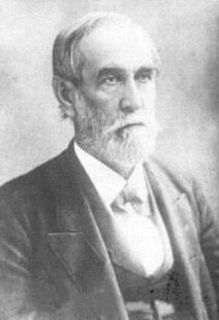
The Missouri gubernatorial election of 1868 was Missouri's 15th gubernatorial election. The election was held on November 3, 1868 and resulted in a victory for the Republican nominee, Congressman Joseph W. McClurg, over Democratic nominee former Congressman John S. Phelps.

The Missouri gubernatorial election of 1884 was Missouri's 21st gubernatorial election. The election was held on November 4, 1884 and resulted in a victory for the Democratic nominee, former Confederate general John S. Marmaduke, over the Republican candidate, former Congressman David Patterson Dyer, and Populist nominee John A. Brooks.

The Missouri gubernatorial election of 1908 was Missouri's 27th gubernatorial election. The election was held on November 3, 1908 and resulted in a victory for the Republican nominee, Missouri Attorney General Herbert S. Hadley, over the Democratic candidate, former Congressman William S. Cowherd, and several other candidates representing minor parties.
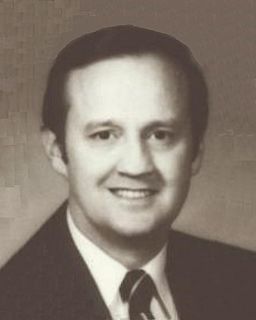
In the 1977 Virginia gubernatorial election, incumbent Governor Mills E. Godwin, Jr., a Republican, was unable to seek re-election due to term limits. John N. Dalton, the Lieutenant Governor of Virginia, was nominated by the Republican Party to run against the Democratic nominee, former Lieutenant Governor of Virginia Henry Howell.
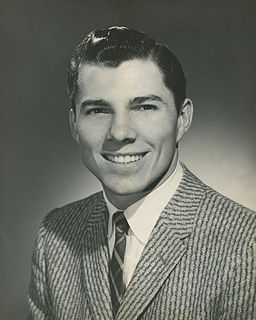
The 1974 Georgia gubernatorial election was held on November 5, 1974. Under Georgia's constitution at the time, incumbent Democratic governor Jimmy Carter was ineligible to serve a second consecutive term. He was elected President of the United States in the 1976 presidential election. George Busbee was elected as the 77th Governor of Georgia.

The 1932 Arizona gubernatorial election took place on November 8, 1932. Incumbent Governor George W. P. Hunt ran for the Democratic nomination, but lost in the primary to Benjamin Baker Moeur, whose pre-gubernatorial experience included service as the Secretary of the Board of Education for Arizona State Teacher's College, which would later become Arizona State University.

The 1934 Arizona gubernatorial election took place on November 6, 1934. Incumbent Governor Benjamin Baker Moeur ran for reelection, he was challenged by former governor George W. P. Hunt and future Governor Rawghlie Clement Stanford in the Democratic primary, but he defeated both of them by a comfortable margin.

The 1940 Arizona gubernatorial election took place on November 5, 1940. Incumbent Governor Robert Taylor Jones ran for reelection but was defeated in the Democratic primary by former Secretary of State Sidney Preston Osborn, whom Jones had previously defeated in 1938.

The 1942 Arizona gubernatorial election took place on November 3, 1942. Incumbent Governor Sidney Preston Osborn ran for reelection, and easily defeated a challenge from former Governor Robert Taylor Jones in the Democratic primary, who Osborn also defeated in 1940.

The 1944 Arizona gubernatorial election took place on November 7, 1944. Incumbent Governor Sidney Preston Osborn ran for reelection, and easily won the Democratic primary, with only token opposition as former Governor Robert Taylor Jones declined to challenge Osborn to a rematch following two losses, in 1940 and 1942.

The 1964 Arizona gubernatorial election took place on November 3, 1964. Incumbent Governor Paul Fannin decided not to run for reelection to a fourth term as governor, instead deciding to successfully run for the United States Senate when incumbent U.S. Senator Barry Goldwater decided to run for President of the United States.

The 1966 Arizona gubernatorial election took place on November 8, 1966. Incumbent Governor Samuel Pearson Goddard ran for reelection to a second term as Governor, narrowly winning the Democratic Party nomination as he was challenged by Justice of the Peace Norman Green.

The 1968 Arizona gubernatorial election took place on November 5, 1968. Incumbent Governor Jack Williams ran for reelection to a second term as governor. Former Governor Samuel Pearson Goddard, who lost to Williams in 1966, again challenged Williams, losing to him in a repeat of the previous election cycle. Williams was sworn into his second term as governor on January 7, 1969.

The 1970 Arizona gubernatorial election took place on November 3, 1970. Incumbent Governor Jack Williams ran for reelection to a third term as Governor. United States Ambassador to Bolivia Raúl Héctor Castro won the Democratic nomination, and narrowly lost the general election to Williams by 1.78%. Williams was sworn into his third and final term as Governor on January 5, 1971.
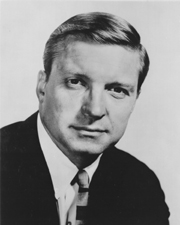
The Illinois gubernatorial election of 1964 was held in Illinois on November 3, 1964. The Democratic nominee, incumbent Governor Otto Kerner, Jr., won reelection against the Republican candidate, Charles H. Percy.

